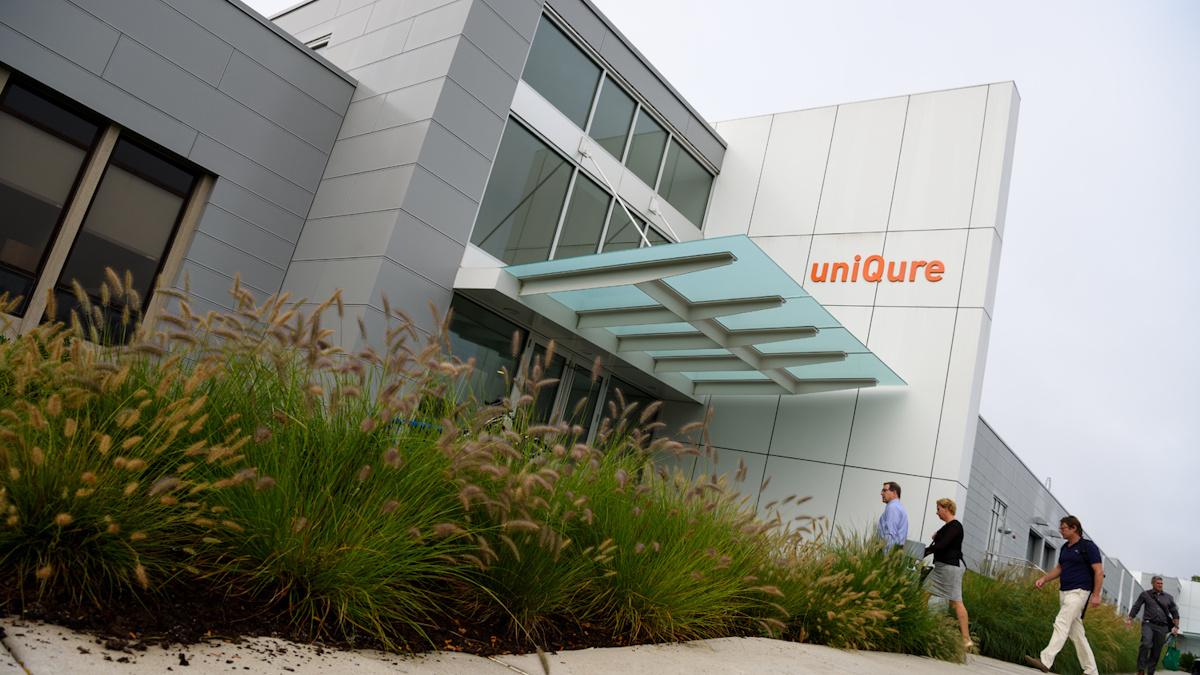uniQure rockets on Huntington’s gene therapy result

Shares in gene therapy developer uniQure have risen more than 75% after the company reported that Huntington’s disease candidate AMT-130 slowed down the progression of the disorder over two years.
The Dutch biotech said a higher dose of the gene therapy slowed progression by 80% compared to a matched control group, measured using the Unified Huntington’s Disease Rating Scale (cUHDRS), 24 months after it was dosed, in a pair of phase 1/2 trials. A lower dose was associated with a 30% slowing in progression.
That was accompanied by significant reductions in the neurofilament light protein (NfL) in cerebrospinal fluid (CSF), a biomarker for nerve degeneration in Huntington’s, with average levels falling below baseline two years after the gene therapy was delivered via surgical procedure directly into the striatum of the brain. The size of the reduction was also dose-dependent.
Huntington’s disease is a rare, devastating neurodegenerative genetic disorder that affects motor function and causes severe cognitive decline, eventually leading to total physical and mental deterioration.
The disease is caused by a mutation in the gene coding for huntingtin, which causes the formation of an abnormally long and unstable form of the protein that is chopped up by cellular repair mechanisms into smaller, toxic fragments.
AMT-130 consists of an adeno-associated virus (AAV) vector carrying a micro-RNA that is designed to switch off the huntingtin gene and prevent it from producing the mutant form of the protein. It was compared in the trials to a sham surgical procedure.
“We believe this is the first clinical trial of any investigational medicine for Huntington’s disease to show evidence of a potential long-term clinical benefit and reduction of a key marker of neurodegeneration,” said uniQure's chief medical officer, Walid Abi-Saab.
The company has been awarded regenerative medicine advanced therapy (RMAT) designation for AMT-130 by the FDA, the first time that status – which allows for accelerated approval based on surrogate or intermediate endpoints – has been given to a Huntington’s therapy. It will meet with the FDA later this year to discuss the potential pathway to market.
uniQure started the phase 1/2 programme for the gene therapy in 2019, giving it a second clinical-stage candidate to accompany its CSL Behring-partnered haemophilia B therapy Hemgenix (etranacogene dezaparvovec), which was approved in 2022 in the US and last year in Europe.
It hasn’t always been plain sailing for the Huntington’s programme, however, as uniQure halted enrolment in the phase 1/2 trials in 2022 to investigate a toxicity signal in patients treated with the higher dose. The studies eventually resumed with additional measures in place to monitor patient safety in place.
Then, just over a year ago, shares in the company plunged after it reported preliminary results from the programme that it said were positive, but failed to convince investors. That was followed by a decision to slash its workforce by 20%, cut R&D programmes, and close a lab in the US so it could prioritise the development of AMT-130 and three preclinical-stage projects.
uniQure is now looking ahead to data from a third cohort in the US phase 1/2 trial of the Huntington’s treatment looking at the use of immunosuppressants in combination with the gene therapy, and three-year results from the trials in mid-2025.
Stifel analyst Paul Matteis called the new data “broadly favourable” and encouraging for the company in the face of “low investor expectations” for AMT-130.
Image by Jan Alexander from Pixabay













